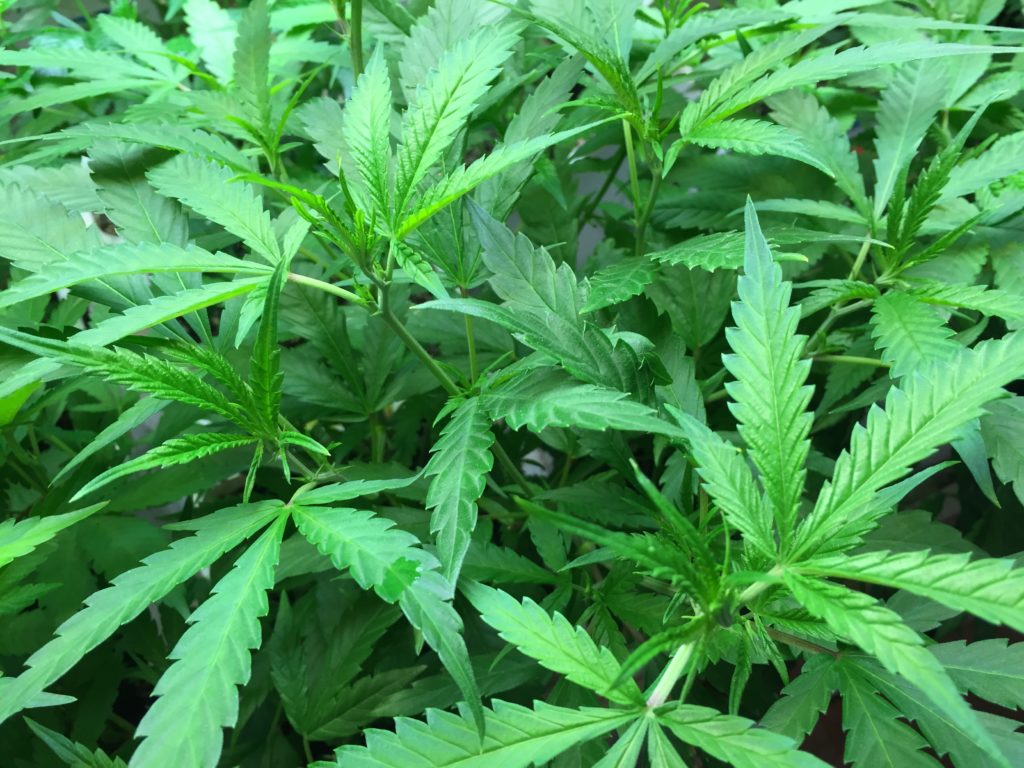
Reading City Council unanimously voted on Dec. 12 to allow up to five medical marijuana dispensaries in Hillsdale County.
The dispensary owners told the Collegian they will open Feb. 12, when the state allows new dispensaries to open.
Reading city council meeting minutes state the city will charge a $4,000 initial facility fee and an annual renewal fee of $3,600 for each license.
Hillsdale County Undersheriff Albright and County Commissioner Wiley stated that they were against it.
Hillsdale County Sheriff Tim Parker represented the county in October opposing the decision to open up to five medical marijuana facilities.
“It’s an overall desensitization to drugs in our communities. And multiple communities have explored the option of running marijuana dispensaries and then decided not to, including the entire county of Branch,” he said. “There are individuals who believe that there is a large windfall of money that will come into the communities because of the marijuana industry.”
Parker said that he feared the medical marijuana dispensaries would bring additional traffic into Reading, which only has a part-time law enforcement agency, and has no immediate plans to boost law enforcement agency, he said, which cost for more service from the Hillsdale County Sheriff’s office.
“We are really tight on manpower covering the entire County of Hillsdale, let alone dealing with additional calls coming into that community.” he said.
Parker said that we can look to states that have legalized marijuana for possible consequences.
“But it depends who you’re looking at. If you’re talking to marijuana advocates, it’s the greatest thing that ever happened to them,” Parker said. “If you speak with the law enforcement community and the communities where this has occurred, there has been a detriment to that community with an increased person-to-person crime rate.”
Longtime Hillsdale resident Jon Smith said he applied and received a medical marijuana card for pain management, and that he smokes about five times per year.
“If you can show me a fact that marijuana increases the person to person crime rate, I will talk about it,” Smith said. “It’s hard to argue it. Medical marijuana does not hurt people in moderation.”
“Prohibition has never worked in history,” Smith said. “And it’s not going to work now, regardless what you think about drugs.”
Parker said that although medical marijuana is legal in Michigan, it is still federally illegal — which poses problems for law enforcement.
“Technically all medical marijuana dispensaries were illegal before December of this year and yet other communities allowed them to be there.” Parker said. “But they are currently getting their marijuana elsewhere, and they currently can do so.”
Parker said that since marijuana is a cash industries that can’t be financed through a federal bank, it encourages dishonesty.
“In cash industries there’s a chance for fraud and not paying taxes to the great state of Michigan and to the communities,” he said. “On top of that, imagine if you will now in your local communities you have store fronts and their children going up in front of the store fronts saying what is this oh this is marijuana place where you can go get your marijuana.”
Parker said that states that have legalized marijuana have seen an increase of driving while intoxicated (DWI), but that there is neither a legal nanogram inebriation limit nor a marijuana breathalyzer.
“We’re going to see an in increase in drug driving cases, so we’re gonna end up seeing an increase in persons harmed in our community,” Parker said. “In general, marijuana tends to mellow people out, right? Why don’t you do a survey with factories and ask them how many of them are doing drug testing anymore because they can’t find enough workers in our communities. So if everyone is on marijuana, whose performing the services?”
Urine tests are the main tests for marijuana, Parker said, but will be used on drivers suspected to be high on marijuana while driving.
Blood and urine tests can only show current intoxication. But marijuana can stay in one’s system for up to 90 days depending on usage and body weight.
“Currently if we test your blood or urine and you have any trace of THC content, and we couple that with your driving behavior, you could be charged with drugged driving,” Parker said.
Overall, Parker said the situation confuses him:
“It’s funny that if we have a[n opioid] drug problem in the community we want to increase this by having more access to [marijuana] drugs,” he said.
Greg Stuchell of Ward 1 ran against legalizing marijuana because he said he thinks it’s a potential-killer.
“Medical marijuana is ok, but it is still a drug,” he said. “Kids always go from potential to no potential after smoking marijuana.”
Stuchell added that he had personal friends whose lives were derailed by marijuana.
“It’s a gateway drug that to worse ones, and nothing good comes from it,” he said. The only good is the tax money coming from it, but if you look at research, it actually kills businesses around it.”

